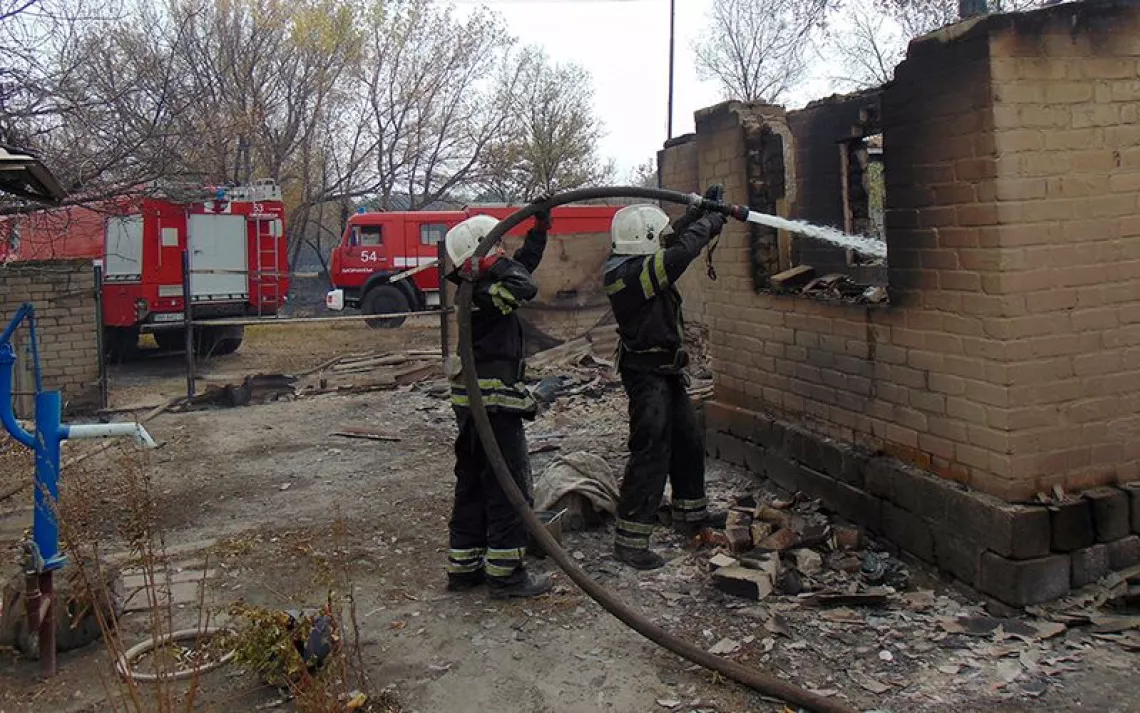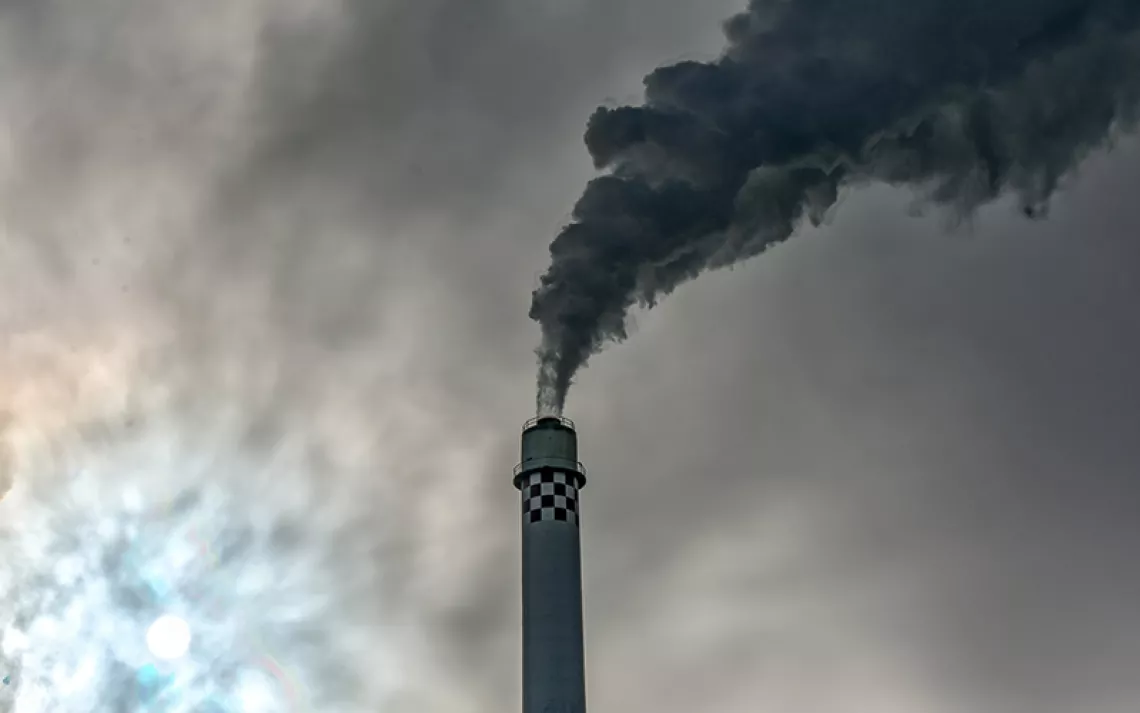Ignoring Protests and Pandemic, Trump Pushes Rollbacks
No matter the crisis, Trump’s solution is to gut environmental protections

Youths take part in a march and rally in Washington, DC, on June 3, 2020. | Photo by Jemal Countess/Redux
President Donald Trump thrives on chaos. While the public struggles to deal with the whirlwinds he is riding (and sometimes creating), Trump seizes the opportunity to fulfill his personal agenda. Already under the cover of COVID-19, he has rolled back Obama-era fuel-efficiency standards for cars, expedited oil and gas drilling on public lands, and tried to prop up the dying coal industry. Now, with massive civil unrest sparked by the police killings of George Floyd, Breonna Taylor, Rayshard Brooks, and so many others, layered on top of the world’s worst response to a major coronavirus outbreak, the Trump administration’s response is to carry out even more extreme attacks on environmental regulations. Here’s a brief roundup.
On June 4, days after Trump threatened to deploy the military to put down anti-police riots in US cities, he issued an executive order declaring a national emergency because of the coronavirus. It directed federal agencies to expedite infrastructure projects on federal lands by waiving environmental reviews. “Unnecessary regulatory delays will deny our citizens opportunities for jobs and economic security,” Trump said, “keeping millions of Americans out of work and hindering our economic recovery from the national emergency.”
Trump’s order was a direct assault on NEPA, the National Environmental Policy Act, which is a bedrock foundation to modern environmental law. NEPA requires environmental review and public consultation for major infrastructure projects on public lands, from pipelines to drilling leases to clearcuts. Such projects can have devastating effects, not only on wildlands and wildlife but also on the health of humans in vulnerable communities.
“President Trump is dealing another blow to the Black community, during a worldwide pandemic and nearly a week into nationwide Black Lives Matter protests against police brutality and structural racism,” said Representative Raúl Grijalva (D-Ariz.), chair of the House Natural Resources Committee. “Gutting NEPA takes away one of the few tools communities of color have to protect themselves and make their voices heard on federal decisions impacting them.”
Pursuant to Trump’s directive, Secretary of Agriculture Sonny Perdue ordered the US Forest Service to prioritize logging, mining, drilling, and grazing in the national forests. His method of doing so was to “streamline consultation processes and environmental reviews.” A particular focus of Perdue’s streamlining has been maximizing the timber harvest in Alaska’s Tongass National Forest, which he wants to exempt from the protections of the 2001 Roadless Rule. Randi Spivak, director of the Center for Biological Diversity’s public lands program, called the order “a road map to national forest destruction.”
The Bureau of Land Management seized on Trump’s order to speed up oil and gas drilling, particularly on public lands near the Navajo Nation, which has been hammered by the coronavirus. Despite stay-at-home orders to limit the pandemic’s spread, the BLM has continued to schedule on-site visits at proposed drilling sites where members of the public can comment and object (to the sites' proximity to cultural and burial sites, for example).
Even with expanded drilling opportunities, however, the current recession and oil glut is tanking both demand and prices for oil and gas. Obligingly, the Interior Department is granting the industry reductions in the royalties it pays to the taxpayers for extracting their natural resources as well as suspensions of lease payments for idled wells. According to the Center for Western Priorities, some drillers are now paying as little as 0.5 percent in royalty fees.
On the East Coast, Trump has used the tumultuous time as an excuse to undo fishing restrictions at 4,900-square-mile Northeast Canyons and Seamounts Marine National Monument. Established by President Obama in 2016, the monument is a largely intact marine ecosystem, whose strong protections Trump, in a campaign-style trip to Bangor, Maine, declared “a terrible thing.”
There’s one problem with Trump’s opening of the marine monument, though—it is very likely illegal. Christy Goldfuss of the Center for American Progress points out that Obama established the monument under the Antiquities Act, which does not allow for future presidential changes of opinion. (A similar issue is now being adjudicated regarding Trump’s dismantling of the Bears Ears and Grand Staircase–Escalante National Monuments in southern Utah.) “Trump’s ocean protection rollback is illegal,” says Goldfuss, “and solidifies his standing as the most anti-nature president in our nation’s history.”
Dan Farber, an environmental law professor at the UC Berkeley School of Law, says that for that matter, Trump’s entire executive order is “legally shaky and unlikely to accomplish much.” The emergency Trump declared, he notes, was about the coronavirus pandemic, but his order is not about resolving the pandemic but boosting various industries. “It seems like a real stretch to call building an oil pipeline part of the emergency response to the coronavirus, just because the public health response to the coronavirus caused a recession,” writes Farber. “Still, it provided a nice photo op. Maybe he should have signed it in front of a church.”
 The Magazine of The Sierra Club
The Magazine of The Sierra Club



